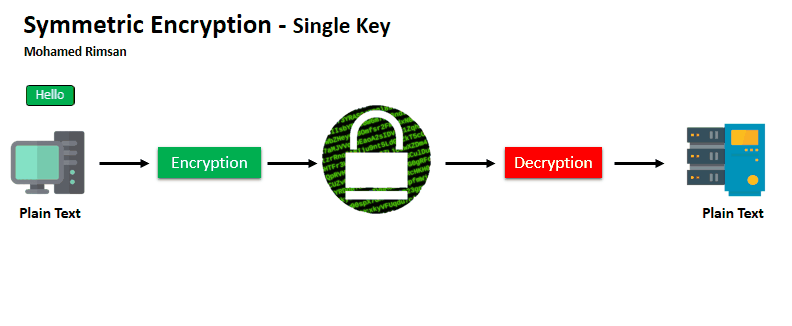
What?
Symmetric encryption, secret-key or private-key encryption, is a cryptographic system that uses the same key for both the encryption and decryption of the data.
The same secret key is used for both encryption and decryption.
Both the sender and the receiver must have the same secret key.
Symmetric encryption is generally faster than asymmetric encryption because the algorithms used are less computationally intensive.
The security of symmetric encryption relies heavily on the protection of the secret key. If an unauthorized party gains access to the key, they can decrypt all the encrypted data.
Key distribution can be a challenge, especially when communicating over an insecure channel.
AES (Advanced Encryption Standard): Widely used symmetric encryption algorithm with key lengths of 128, 192, or 256 bits.
DES (Data Encryption Standard): An older symmetric encryption standard, now considered insecure for many applications.
In many practical applications, symmetric and asymmetric encryption are used together in a hybrid approach.